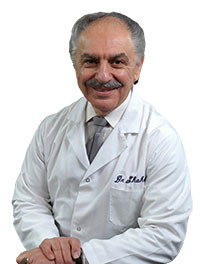Metastasis Treatment in Glen Rock, NJ

There are usually a number of stages to cancer , be it breast cancer , skin cancer (like melanoma), leukemia and so on. Regardless of the type, the stage of cancer signifies the severity. In the last stage (usually stage IV) something called metastasizing can take place, this is the uncontrolled spread of cancer to other parts of the body.
What is Metastatic Cancer?
Metastatic cancer is a condition like any other cancer, except cancerous cells start to travel to other parts of the body. They usually travel via the blood or lymph system (lymph is a clear fluid that circulates through our bodies transporting immune system responses and other vital compounds). Once these cancerous cells find a new “home” in other organs/body parts, they start to form new tumors, these are called metastasis.
It’s not as simple as it sounds however, there are several specific requirements for cancer to grow in a new area. With this in mind, the location of spreading cancer can often be predicted by highly trained oncologists. With cancer, staying ahead of the condition is crucial.
Entering the blood (or lymph) system is a necessary precursor for most metastasis. As in real-estate, cancer is all about “location, location, location.” The new location must allow the cancer to thrive, if it’s not adequate for cancer growth, metastasis may not form. Sticking with the real-estate metaphor, if the new neighbors are trouble, the move may not happen. The site of metastasis shouldn’t be immune system adjacent. Immune responses can thankfully destroy some cancers.
Where do Cancers Spread?
In the specific case of breast cancer, whether it’s a sarcoma, a carcinoma (like adenocarcinoma) or any other form of cancer, the metastasizing of breast cancer usually leads to the underarm lymph nodes. The lungs are an especially common area for metastasis to form. The circulatory system uses the lungs to oxygenate blood, if the break-away cancerous cells find themselves in a blood vessel, chances are good that they will eventually end up in the lungs—if they don’t land somewhere else first.
The terms “downstream” and “down-wind” have been used to describe the way a cancer metastasizes. Once the cells break free from the primary tumor, they usually settle in a location along the normal path of fluid travel in the body (lymph or blood). In some cases, cancer can spread to nearby tissues simply from close proximity.
The Danger of Metastasis
While spreading cancer sounds bad in and of itself, the real danger relates to unpredictability. When a cancer starts to metastasize, there is usually a way to roughly estimate the location it will spread to in the body. However, when a cancer has an unknown primary (CUP), things get very serious.
When a cancer first forms, this original site is known as the “primary location.” With this seemingly simple piece of information, doctors can figure out a lot about a specific type of cancer. Cancers are always identified by their origin, not where they spread. Specific locations give cancers specific characteristics, growth patterns, speed of growth and most importantly, areas of weakness. By identifying the primary location doctors can target cancer with specific treatment.
However, if a cancer has an unknown primary, this information is unknown. When a cancer then metastases, doctors may mistake the metastasis as the primary location, in some cases, administering a treatment that doesn’t fit with a specific cancer.
Metastasis are almost always found in the last—and most severe—stage of cancer. Their presence signifies a strong cancer that may be resistant to many treatments. Also, when a cancer metastasizes, it usually changes and evolves somewhat, meaning treatment options which may have worked in the primary location will no longer be as effective, or may now be completely useless.
The key to cancer treatment is speed. The sooner you identify a cancer, the better chance you have of beating the condition before it metastases.
Request more information about metastasis treatment today. Call (201) 806-6099 or contact Dr. M.T. Shahab online
Medwell Orthopedics & Functional Medicine for Men & Women
Address
33 Central AveMidland Park, NJ 07432
(201) 806-6099
www.BergenCountyDoctors.com
Hours
Mon:
8:00 am - 8:00 pm
Tue:
2:00 pm - 7:00 pm
Wed:
8:00 am - 6:30 pm
Thu:
8:00 am - 1:00 pm
Fri:
8:00 am - 6:30 pm
Sat:
9:00 am - 1:00 pm
Sun:
By Appointment Only


